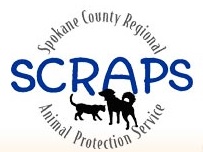
 Urinary Obstructions
Urinary Obstructions
If you see your cat going in and out of the litter box, posturing or only producing a small amount of urine – possibly while crying – bring your cat to the vet right away! Feeding your cat a diet that consists primarily of wet food will reduce the risk of urinary obstructions.
Spay or Neuter Your Pets
Spaying your pet is not just about preventing unwanted litters. Animals that have not been spayed are at risk of developing pyometra, an infected uterus. Pyometra is potentially life-threatening but the risk of developing pyometra is zero when an animal has been spayed. Additionally, the phyiscal issues involved with delivering many unwanted litters is unhealthy for your pet.
Hairballs or Something Else
A coughing cat may have developed asthma or fluid on its lungs and needs medical attention. A common misconception is that cats cough up hairballs, but when a cat “coughs” up a hairball it is actually vomiting. Vomiting can be a result of something minor, like a cat consuming its meal too quickly, or it can be a sign of a much more serious condition that requires immediate medical attention.
High Rise Syndrome
Many people believe that cats are agile, and therefore won’t fall out of windows. Cats can lose their balance, get spooked, or react to birds with a strong prey drive. Cats don’t always land on their feet and a serious fall can be devastating. Cat owners should always have screens on their windows.
Parvovirus
All dogs should be vaccinated against parvovirus. The virus is common, life-threatening, and expensive to treat. Puppies and young dogs are at particularly high risk. Have your dog vaccinated and don’t let puppies’ paws touch the ground outside their homes until they have completed their parvo vaccine series. Dogs can contract parvo from walking in the grass, then licking their paws, from nose-to-nose or nose-to-rear contact, or from smelling feces or drinking out of puddles.
Dogs on a Leash
It’s very important that pet parents walk their dogs on a leash. The majority of cases where dogs are brought to vets after having been hit by cars results from dogs being allowed to walk off-leash. Having your dog on a leash also helps protect it from aggressive animals.
Rabies
Rabies is a viral disease that affects the brain and spinal cord of all mammals, including cats, dogs, and humans. Once symptoms appear, rabies is close to 100-percent fatal. Vaccination is the key. Vaccinating your pet doesn’t just protect them from rabies – it also protects your furry friend if they bite someone.
Ticks
Ticks are parasites that feed on the blood of unlucky host animals. Although their presence may not even be noticed by the host, ticks can transmit many diseases through their bite. Most ticks are visible to the naked eye. Run your hands carefully over your pet every time it comes inside, and especially check inside and around the ears, head, and feet. Speak to your vet to select the correct product and remember that some treatments that are safe for dogs can be toxic to cats.
What is Toxoplasmosis?
Toxoplasmosis is a disease caused by the parasite Toxoplasma gondii, which can be found in garden soil and raw meat. Pets can get a toxoplasma infection by killing and eating infected prey. The disease can also be passed on from cats to humans. Ask your veterinarian to test for the disease, which can be cured by antibiotics.
SOURCE – SCRAPS onesheet, 2015



